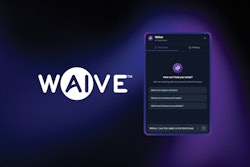
In many ways, being an effective leader boils down to your ability to influence people—a proficiency that is driven by one’s Emotional Intelligence Quotient (EQ). Leadership is more about soft skills—the ability to inspire, persuade, guide, sway and communicate in a way that’s “heard” rather than just “listened to”—than it is about being the best relative to hard skills.
As a leader, if you do not understand your team’s motivations and feelings, you will never be able to establish an optimally functioning team and reap the benefits that come with that. To become more adept at such soft management skills, leaders can actively work to improve their EQ. This effort includes understanding your own emotions and triggers. What motivates and demotivates you, evokes feelings of stress or satisfaction, compels you to go “above and beyond” or not participate at all?
Taking the time to answer these questions about yourself is important.
“If you are to lead with maximum efficacy, you must build an enthusiastic following,” notes leadership authority Andrew Wyatt, author of the new book, Pro Leadership: Establishing Your Credibility, Building Your Following and Leading With Impact. “This requires relational and people skills as well as all of the related soft skills that contribute to one’s EQ.” According to Wyatt, whose company develops leaders worldwide through coaching, speaking, training and consulting, the good news is that everyone can develop their EQ. Unlike IQ, which pretty much is what it is, EQ can be nurtured, developed and increased.
Wyatt shares some more of his insight from these excepts in his book.
Why EQ matters to leadership
According to Wyatt, pro leaders must have the ability to influence others to follow them, and the most important ingredient in influence is relationship. The key to a winning relationship is winning the heart, and doing so is not possible without EQ. You may have a high IQ and natural giftedness in your vocation, but if you are unable to influence others—you may be effective as a manager—you will never be a leader.
Remember, leadership is about people, and people will follow with their head for only so long before they eventually grow weary and peel off or fade away. But if, through your relational abilities, they feel your love and care for them, they will follow you even when times get tough. That is why it is vital to your leadership to allow your EQ to lead. But EQ alone won’t be enough. In fact, it must be balanced with IQ. Although IQ is not a natural leader attribute, and as a result is best relegated to the back seat, it is important to the success of any enterprise. Your role as leader will be to balance both EQ and IQ, to manage the balance and tension between the two. That balancing act will be manifested through how your team works together.
Recall that EQ builds companies and IQ builds products; it is not possible to have one without the other. At the same time, one is not valued over and above the other. Although the theme of this lesson is to let your EQ lead, that does not make it more valuable than IQ—both are required to win
Developing EQ in yourself and others
Setting an EQ standard starts with leadership, says Wyatt. To develop a culture-wide EQ you will need to start with yourself, beginning with your attitude toward the people you are leading. As humans, we naturally favor ourselves. That means, if I am an EQ-dominant person, I will naturally be drawn to other EQ-dominant people. The same is true for the IQ-dominant person. This is fine for friendships. However, favoring one trait over the other in your organization will create a culture of favoritism, resulting in dysfunction caused by this imbalance. As the leader, it is critical for you to have no favorites, with the ability to defend both camps.
Developing EQ among your leadership team is a necessary activity of pro leadership. These leaders realize they cannot succeed alone. The extent to which you foster EQ among the members of your inner circle is the extent to how far your leadership team will go. To do this as a leader, you will need to start at the same place you did with your cultural EQ: your attitude. Leadership development of any type is a process, not a destination. It is a journey that never ends. When you stop developing, you stop growing.
No matter what your own EQ level is, ongoing personal development is always important. Read all you are able to find on the topic. Second, if you don’t have one, consider working with a coach. Third, join a peer group or start one yourself. It is true that iron sharpens iron. Developing EQ is not a solo sport, you will need to have some people to rub up against. Leadership is a lonely business; you need to have someone to talk to, a safe environment to share and people who will tell you the last 10 percent—that bit of information most people won’t tell you.
“IQ builds products, but EQ builds companies and followings. So, as you step out today to lead, let your EQ lead the way,” Wyatt urges. “Develop your EQ, your culture’s, your team’s, and your own. Do so, and you will have taken a big step in developing your following and your pro leadership abilities, putting yourself in a prime position to be able to motivate the people you lead.”
Editor’s Note: This is a guest post from Merliee Kern, MBA










